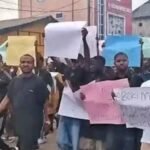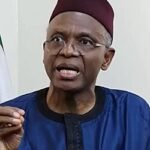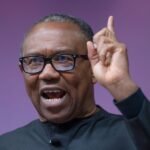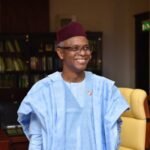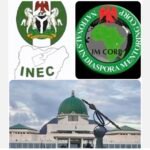By Perpetua Onuegbu
Abuja: (NAN)/FLOWERBUDNEWS : Experts have urged Nigerians to actively track government spending on climate projects, warning that poor awareness worsens the nation’s vulnerability to climate change.
They made the call during a virtual discussion on “Climate Change Financing and Nigeria’s Increasing Debt Profile” held on Saturday in Abuja.
The session was organised by Connected Development (CODE), a civil society organisation.
Mr Akintunde Babatunde, Executive Director of the Centre for Journalism Innovation and Development (CJID), noted that most Nigerians remained detached from governance and rarely demanded accountability until crises directly affected them.
He emphasised the importance of making climate change issues relatable to people’s daily lives, stressing that only then would citizens be motivated to hold government accountable for climate financing.
“People need to know that when floods wash away farms, when herders migrate due to desertification, or when unusual rainfall causes food shortages, these are direct consequences of climate change,” he said.
Babatunde urged civil society organisations and the media to simplify climate conversations, linking them to issues like food security, fuel scarcity, and community conflict.
According to him, this approach will motivate citizens to ask questions and demand accountability in climate finance.
He concluded that building a culture of citizen engagement and awareness was key to ensuring transparency ” in how government mobilises and spends funds for climate action.”
The Regional Programme Manager, GreenFaith Africa, Dr Pius Oko, said Faith-based organisations must play a stronger role in mobilising climate action and ensuring fair access to climate finance.
According to him, faith communities are often the first responders when disasters such as floods occur, as victims usually turn to churches and mosques for shelter.
He noted that “this unique position gives faith leaders a moral responsibility to influence policy and hold governments accountable.
“Faith traditions remind us that the earth is sacred and entrusted to humanity as a divine gift, not a resource to be endlessly exploited.
“No extraction without justice. If projects displace communities, cause hunger or poverty, then faith leaders must speak truth to power.”
He also expressed concern that most climate finance reaching Africa came in the form of loans, further straining economies already burdened with rising debt servicing.
He urged international partners to prioritise grants—particularly for climate adaptation—arguing that funding must be transparent, people-centered and locally owned.
He therefore recommended that no extraction of fossil should be carried out without consent of the communities.
Oko cited Lagos State’s Climate Adaptation and Resilience Plan, which piloted climate spending tracking.
He called for more states to adopt similar accountability measures to ensure funds directly benefited vulnerable communities.
On her part, Mrs Alice Adebayo, Research Analyst, Natural Resource and Climate Governance, Budgil Foundation, noted that public involvement was crucial in ensuring accountability and effective use of funds.
She said citizens must understand how debt could be utilised to support climate initiatives, especially in developing countries facing rising environmental challenges.
Adebayo quoting the Managing Director of the Rural Electrification Agency (REA), said efforts were ongoing to bridge the gap between climate finance and debt servicing.
“He explained that while most international funding is directed towards mitigation and adaptation projects, a significant share goes into mitigation, where the REA is playing a key role.
“He disclosed that the agency is setting up an asset management company to help de-risk climate-related projects, thereby making them more attractive to investors and sustainable in the long term.”
Adebayo therefore urged both citizens and civil society organisations (CSOs) to actively engage in budget discussions and climate finance debates.
“Everyone should get involved, broader participation will strengthen transparency and ensure that funds truly address climate challenges,” she said.
According to CODE Chief Executive, Hamzat Lawal, citizens should scrutinise how government spends loans and grants meant for climate change mitigation.
The News Agency of Nigeria (NAN) reports that studies by CODE show Nigeria has received over 1.4 billion dollars in climate-related loans and grants, further adding to its debt burden.(NAN)

